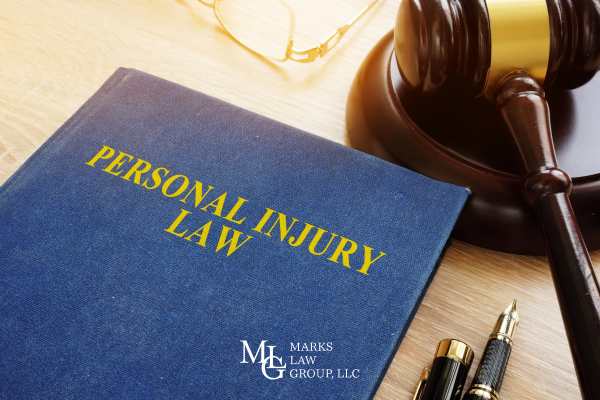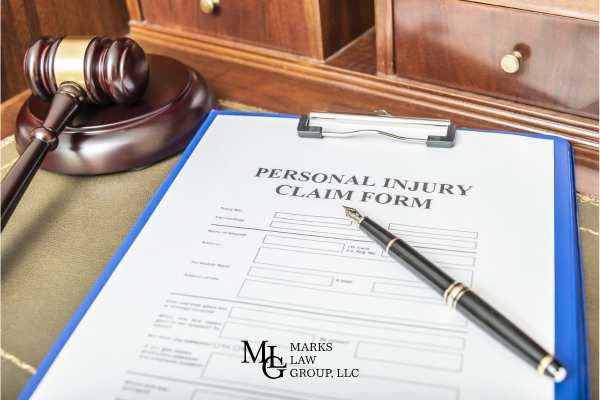After a car accident in Georgia, pain and suffering can play a significant role in determining the compensation you may receive. Pain and suffering covers both physical and emotional distress caused by the accident, from ongoing pain to impacts on your daily life and mental well-being. Unlike medical bills or property damage, pain and suffering is harder to quantify, yet it can substantially affect the overall value of your claim.
Understanding how pain and suffering is calculated and factored into a car accident claim is essential to securing fair compensation. If you’ve been injured in a car accident, consulting with an experienced car accident lawyer in Decatur can help ensure that your claim fully reflects your suffering and losses. Call Marks Law Group at (678) 251-9309 to discuss your case and explore the compensation you may be entitled to receive in Georgia.
What is Pain and Suffering in an Injury Claim?
Pain and suffering refer to the non-economic damages you experience after a personal injury accident. Unlike medical bills or lost wages, which are straightforward to calculate, pain and suffering address the physical pain and emotional distress caused by the accident. These damages also consider how your injuries impact your enjoyment of life, including your ability to engage in hobbies, spend time with family, or perform daily tasks.
Types of Pain and Suffering
Physical pain including discomfort, chronic pain, and limitations caused by bodily injuries. For example, fractures, burns, or whiplash can lead to significant ongoing physical pain. Severe injuries often cause lasting physical suffering that affects every aspect of a victim's life.

Emotional suffering like mental anguish, anxiety, depression, PTSD, or other psychological effects stemming from the accident. Emotional suffering can impact your relationships, sleep patterns, and overall quality of life. For many injury victims, this loss of enjoyment in life can be just as debilitating as physical injuries.
What is the Difference Between Pain and Suffering and Other Damages?
Pain and suffering specifically cover non-economic losses, which do not have a direct monetary value.
- Economic Damages: Include measurable costs such as medical expenses, lost wages, and property damage. These are often the foundation of an accident injury claim.
- Non-Economic Damages: Address the less tangible impacts of a motor vehicle accident, such as mental distress, diminished quality of life, and chronic physical discomfort. Non-economic damages, including loss of enjoyment of life, compensate for the profound changes that severe injuries impose on accident victims.
While economic damages compensate for out-of-pocket costs, pain and suffering aim to restore some sense of justice for the personal impact of your injuries.
How Pain and Suffering Are Calculated in Georgia
In Georgia, there is no fixed formula for calculating pain and suffering damages, which can make these claims more complex. Insurers and courts rely on several methods to determine a fair value.
No Set Formula
Georgia does not mandate a specific calculation for pain and suffering damages. Instead, the amount awarded depends on the individual circumstances of the case and the evidence presented. Personal injury attorneys play a vital role in gathering the necessary documentation and building a compelling case to demonstrate the extent of your suffering.
Multiplier Method
One common method is multiplying your economic damages by a number (usually between 1.5 and 5) that reflects the severity of your pain and suffering. For example, if your medical expenses and lost wages total $20,000, and the multiplier used is 3, you could receive $60,000 in pain and suffering damages. This approach often benefits accident victims with severe injuries that significantly alter their lives.
Per Diem Method
This approach assigns a daily monetary value to your pain and suffering, which is then multiplied by the number of days it takes to recover fully or reach a settlement. For instance, if the daily value is $200 and your recovery takes 100 days, the pain and suffering portion would amount to $20,000. Personal injury lawyers often evaluate whether the per diem method is more advantageous depending on the case details.
Factors That Affect Compensation for Pain and Suffering
Several factors influence how much compensation you may receive for pain and suffering damages:
Severity of Injuries
The more severe your injuries, the higher the likely compensation. For example, traumatic brain injuries or spinal cord damage often result in substantial pain and suffering awards due to their long-term impact. Severe injuries that cause permanent disabilities or disfigurement typically lead to higher awards in a lawsuit for pain and suffering.
Impact on Daily Life
Injuries that disrupt your ability to work, care for your family, or engage in hobbies can increase your pain and suffering claim. The more your life is affected, the greater the damages may be. This includes a significant loss of enjoyment in activities that previously brought happiness or fulfillment.
Long-Term Effects
Permanent injuries, chronic pain, or ongoing psychological trauma often result in higher compensation since the suffering continues indefinitely. Accident victims who experience a long-term loss of enjoyment in life may receive additional compensation to address these ongoing challenges.
Degree of Fault
Georgia follows a modified comparative negligence law. If you are found partially at fault for the accident, your damages will be reduced by your percentage of fault. For example, if you are 20% at fault, you will only recover 80% of the awarded damages. Personal injury attorneys can help minimize fault allocation to maximize compensation for their clients.
How to Establish Pain and Suffering for a Car Accident Claim
Proving pain and suffering requires strong evidence to support your claim. Here are some common ways to establish damages for pain and suffering:
- Medical Records: Doctor’s notes, treatment plans, and diagnostic tests provide crucial evidence of physical injuries and the pain they cause. Personal injury lawyers often use these records to establish a clear link between the injuries and the resulting suffering.
- Therapist or Counselor Records: Mental health records can demonstrate the emotional impact of the accident, such as anxiety, depression, or PTSD. These records are especially important in showing how the accident disrupted your mental well-being and contributed to a loss of enjoyment in life.
- Personal Statements and Testimonies: Your own account, along with statements from family, friends, or co-workers, can help illustrate how the injuries have disrupted your life. These accounts provide valuable insight into the non-economic effects of the accident, such as changes in your mood, behavior, and ability to perform daily activities.
- Photographs and Videos: Documentation of injuries, recovery processes, or physical limitations can make a compelling case for pain and suffering damages. Accident victims can use this evidence to demonstrate the lasting impact of their injuries, which can support their personal injury claim.

Do I Need a Lawyer to Claim Pain and Suffering Damages?
While you are not required to have a lawyer to file an injury claim in Georgia, having legal representation can significantly strengthen your case. A skilled attorney can:
- Help substantiate your claim for damages with strong evidence.
- Negotiate effectively with insurance companies to secure fair monetary compensation.
- Advocate for you in court if a settlement cannot be reached.
Having a lawyer increases the likelihood of a successful personal injury lawsuit, particularly when pain and suffering damages are contested.
Challenges in Proving Pain and Suffering Damages
Pain and suffering damages are often disputed because they are subjective and harder to quantify than economic damages.
- Subjectivity of Pain and Suffering: Unlike medical bills, which have concrete dollar amounts, these types of damages rely on personal accounts and supporting evidence. Insurers often challenge the validity of these claims, especially in cases involving emotional distress or loss of enjoyment.
- Proving Non-Economic Losses: Demonstrating emotional distress or a reduced quality of life can be difficult without physical indicators. This is where thorough documentation and professional evaluations play a critical role in convincing insurers or a court of the legitimacy of the claim.
- Dealing with Insurance Adjusters: Insurance adjusters may attempt to minimize payouts by downplaying the severity of your pain and suffering. A skilled personal injury lawyer can counter these tactics, ensuring you receive the financial compensation you deserve for your physical pain and emotional suffering.
Injured in a Car Accident? Let’s Evaluate Your Claim
Pain and suffering play a crucial role in determining the value of a car accident claim in Georgia. These damages compensate for the physical and emotional toll an accident takes on your life, including severe injuries that disrupt daily activities and reduce your enjoyment of life. While proving pain and suffering can be challenging, experienced attorneys can provide invaluable assistance by gathering evidence, negotiating with insurers, and advocating for fair compensation.
If you’ve been injured in a car accident and believe you’re entitled to pain and suffering damages, contact our personal injury law firm today to protect your rights and pursue the compensation you deserve.
